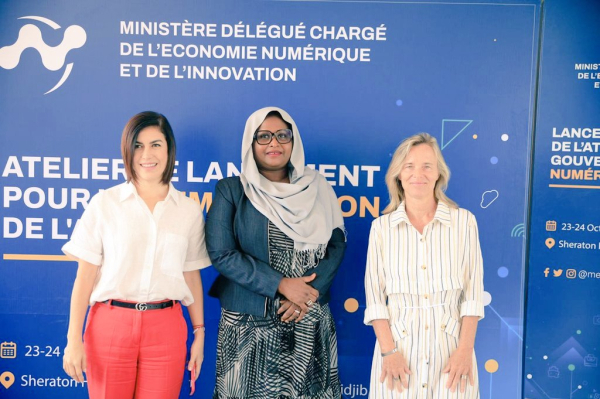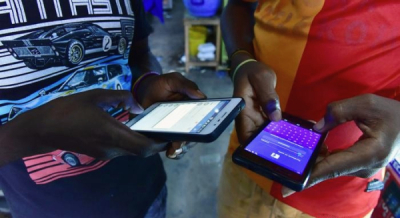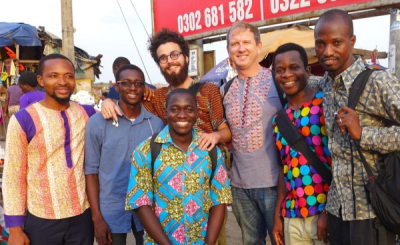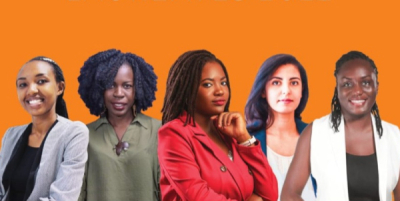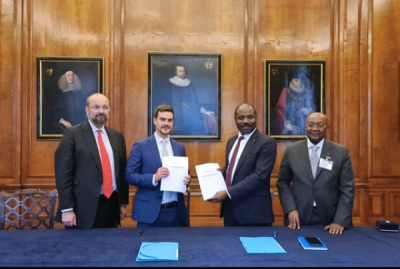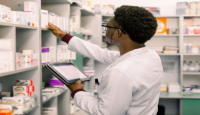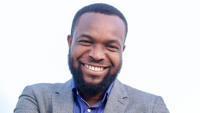Over the years, observation satellites have demonstrated their importance in data collection for effective decision-making. In Africa, which has possibly the lowest number of observation satellites, they can accelerate in several sectors, including agriculture.
Zimbabwe's Zimsat-1 and Uganda's PearlAfricaSat-1 nano-satellites are slated to be launched into space on November 6, 2022. They will be launched from the U.S. National Aeronautics and Space Administration's (NASA) Commercial Space Launch Facility in Virginia. Zimbabwe and Uganda have finalized preparations for the launch, we learn.
The nano-satellites will fly aboard the Northrop Grumman (NG-18 Cygnus), which will deliver them to the International Space Station (ISS). Then, they will be deployed into orbit.
According to Melissa Gaskil of the International Space Station Program Research Office at the Johnson Space Center, "the statistical data collected could help distinguish bare ground from forest and farmland and possibly indicate the quality of agricultural growth."
They could therefore help improve the livelihoods of the citizens of Uganda and Zimbabwe, she added.
The launch of the first Zimbabwean and Ugandan satellites is part of the 5th phase of the joint global multi-nation Birds project (BIRDS-5 project). It is a constellation of two 1U CubeSats (Zimsat-1 and PearlAfricaSat-1) and the 2U CubeSat (TAKA) developed by Japan, which will also be launched into space with African equipment. Fourteen countries have already participated in the BIRDS program, launched in 2015 and led by the Kyushu Institute of Technology (Kyutech).
BIRDS also introduces students from developing countries to satellite development, laying the groundwork for similar space technology projects in their home countries for future sustainable space programs.
“BIRDS-5 performs multispectral observations of the Earth using a commercial camera and demonstrates a high-energy electronic measuring instrument,” we learn.
Muriel Edjo
The D4D project is part of the Horn of Africa Initiative, which aims to identify common cybersecurity and public services digitalization challenges in the Horn of Africa.
Four international institutions recently launched the program Digital for Development ( D4D), which aims to support the digital transformation of countries in the Horn of Africa, in Djibouti. They are namely the European Union, Expertise France (EF), GIZ, and the International and Ibero-American Foundation for Administration and Public Policies (FIIAPP).
The training workshop on the first pillar of its roadmap (Djibouti Smart Nation) began on Sunday, October 23 in Djibouti under the guidance of Minister Delegate in charge of Digital Economy and Innovation Mariam Hamadou (photo, center), and the EU Head of Cooperation in Djibouti, Simona Schlede (photo, right).
“This workshop will provide an opportunity to present the #GovStack approach, the European initiative that helps public administrations build their digital infrastructure networks based on an approach prioritizing and classifying services in interoperable blocks,” reads a Tweet by the European Union’s delegation in Djibouti.
“GovStack building blocks include software components such as security, registration, authentication, digital payments, digital identity, shared data repositories, content management, and data collection,” Mariam Hamadou explained.
The D4D is a 3-year program with an €11 million budget (€10 million will be provided by the European Commission and €1 million by the German Federal Ministry of Economic Cooperation and Development-BMZ). It will benefit three countries, namely, Djibouti, Kenya, and Somalia. It will enable the beneficiaries to undertake the first strategic, institutional, regulatory and humanitarian steps necessary to establish digital government services that can boost regional harmony. It also focuses on cybersecurity reinforcement.
Ten directorates from various Djiboutian institutions have taken part in the workshop. They include the Single Window, the Central Purchasing Center for Essential Medicines and Medical Consumables (CAME), and the Ministry of Labor.
The D4D program is part of the Horn of Africa Initiative launched in October 2019 by the governments of Djibouti, Ethiopia, Eritrea, Kenya, and Somalia. It aims to identify and harmonize approaches to addressing the region's common cybersecurity and public service digitization challenges.
Samira Njoya
In Africa, and possibly in the rest of the world, instant messaging apps are getting more popular. Local entrepreneurs have decided to create alternatives to the foreign apps that have dominated the market up to now.
OnDjoss is an instant messaging app developed by a Cameroonian eponymous start-up. It allows users to chat through instant text messages, and audio and video calls.
"Ondjoss is an instant messaging app made by Africans for the world. It is about providing Africans with a powerful messaging app that they can identify with. The aim is to later compete with similar well-known apps worldwide but, we want to conquer Africa first,” indicates Ondjoss founder, Valere Tchapda.
The mobile app is available for Android devices only. Some users criticize it for being a carbon copy of WhatsApp but, Valere Tchapda says it is not. She explains that unlike other messaging apps (Whatsapp notably), other Ondjoss users can not access other users’ phone numbers in groups they belong to. They can only see usernames. With Ondjoss, users can also send heavy files of up to several gigabytes and save messages to recover later when they misplace their phones.
In 2022, a new feature was added to the app. The feature, called Kongossa, allows peer-to-peer messaging for enhanced privacy.
To register or create an Ondjoss account, users will need to provide their phone numbers and create pseudos. Then, they can chat with their contacts, who also have Ondjoss accounts. The personal data scandal that hit U.S firm Meta and its messaging app, WhatsApp notably, positively impacted OnDjoss userbase. It claims more than 125,000 users and Playstore data shows 100,000+ downloads.
Adoni Conrad Quenum
In Africa, access to conventional financing is most of the time difficult for SMEs and informal traders. Mosabi aims to facilitate that access and also improve its users’ business and financial literacy.
Mosabi is a tech solution developed by a Sierra Leonean eponymous start-up. It helps entrepreneurs, mainly from the informal sector, access financial and business information to manage their business and money better.
“We [...] use visual and audio cues that can reach low-literacy users. Not only does our training help users build practical skills and increase their income, but our lessons and economic incentives are also specifically designed to drive behavior change,” explained Mosabi co-founder and CEO, Chris Czerwonka.
Through its video content, users can study many subjects, including entrepreneurship, business, and financial literacy. Mosabi also uses gamified quizzes, surveys, and conversational agents to enhance the way courses are delivered while considering participants’ literacy to adjust its contents and exams.
“We believe we are creating unique and tangible value from learning, for people excluded from traditional educational pathways, and placing the control back into their hands as we help them understand and improve their creditworthiness,” Chris Czerwonka says.
The startup claims more than 20,000 users in Sierra Leone, Ghana, Kenya, Liberia, Paraguay, and Senegal. According to Czerwonka, within five years, it plans to launch in 20 global south countries and emerge as the “worldwide training platform of choice for lifelong learning aligned with global sustainable development” within ten years. To support its growth plan, it has already raised more than US$150,000.
Its Android app is not on PlayStore, the official app store for Android devices, but, it has already been downloaded more than 10,000 times from APKCombo.
Adoni Conrad Quenum
Since its launch in 2016, the initiative supported by DS Avocats, Honoris United Universities, Inetum, Meridiam, Roland Berger, and Société Générale, has already supported 718 female entrepreneurs.
Women In Africa (WIA), an international platform supporting African women entrepreneurs, unveiled the 51 country laureates of the 6th edition of its annual pan-African entrepreneurial project competition (WIA54) on Tuesday, October 18. For this sixth edition, the platform received more than 7,500 applications and 503 finalists were selected.
“[...]The best candidates from the mentoring and training phase will participate in a Pitch competition in June 2023 that will give them access to investors and seed capital. This will be a unique opportunity to demonstrate business knowledge, convince the jury of the viability of their business project and raise funds to deploy their structure,” the WIA announced previously.
The 51 country laureates “will have the opportunity to join an MBA program of [the WIA] partner Honoris United Universities.” They will “also benefit from a communication highlight worth €5,000 on the WIA social networks” while the best female entrepreneur will also receive a €10,000 prize.
Through WIA54, Women In Africa aims to support 10,000 businesswomen from a range of sectors such as agriculture and agritech, food and foodtech, education and edutech, fintech, environment, and sustainable development, beauty, and creative industries by 2030. The goal is to help create 100,000 jobs and generate US$10 billion in revenue for the African economy.
According to WIA, this focus on women entrepreneurs over the past six years is an expression of its belief in women’s decisive contribution to the continent’s progress.
Muriel Edjo
To successfully implement its 2025 strategic development plan, Gabon is multiplying partnerships to attract investors.
Last Tuesday, Gabon signed a partnership agreement with Asoko Insight to develop virtual DealRoom. The agreement was signed by the Minister of Investment Promotion Hugues Mbadinga Madiya, and Rob Withagen, co-founder and CEO of Asoko Insight two days after the flag-raising ceremony marking Gabon’s entry into the Commonwealth.
The digital platform aims to promote the influx of investments by providing national and international investors with an effective tool for business networking.
“[...] The launch of this digital platform sends a strong signal to investors. […] “it is an innovative partnership for our country. The acquisition of this digital tool makes it possible to promote investments and gives greater visibility to investment projects. It also allows for fluidity of information in terms of programs, reforms, and opportunities, as well as data on the profile of investors,” said Minister Mbadinga Madiya.
Gabon is a secure business environment that provides access to a regional market of 180 million consumers. It presents business opportunities in the energy, health, education, timber, fisheries, agriculture, and services sectors. In 2019, Forbes ranked the country as the 37th and 147th best country for business respectively in Africa and in the World.
The platform is expected to promote investment, give greater visibility to investment projects, and allow a great flow of information on programs, reforms, opportunities, and data.
It “will result in a faster investment process, which will have the advantage of building Gabon’s reputation as a business destination and of increasing the flow of FDI in Gabon,” the Investment Minister added.
Samira Njoya
Access to medicines sometimes proves challenging in Africa, leading tech entrepreneurs to develop innovative solutions to address the various issues.
Phati is an e-health solution developed by Congolese start-up Valorigo, founded in 2018. It helps users check whether health products are available in their neighborhoods, compare prices, and get directions to the most appropriate pharmacies.
Users can access the solution through its web platform and contact chosen pharmacies on Whatsapp. Indeed, when looking for specific health products, they just have to visit the Phati web platform and input their location and the name of the product. They will then get redirected to a page listing the pharmacies selling products, their prices, and contact details. Once the user selects a pharmacy to buy from, he/she is redirected to WhatsApp to complete the acquisition.
To be listed on Phati, pharmacies have to register by providing their name, address, and contact details. Apart from Phati, Valorigo has developed several other e-health solutions.
In September 2022, it was selected as one of the 30 healthtech startups that will participate in the pan-African program Investing in Innovation (i3).
Adoni Conrad Quenum
He currently heads one of Africa’s leading incubators and accelerators. From day one, his ambition has always been to contribute to the development of tech innovation on the continent. That ambition is still the same twenty years on.
Bosun Tijani (photo) is a Nigerian entrepreneur, innovation expert, and researcher. He is also the co-founder and CEO of Co-creation Hub Nigeria (CcHUB), a tech lab and startup pre-incubation and acceleration space based in Lagos.
“[..] For everything we do, we put a strong emphasis on innovation and how to build an innovation ecosystem that allows knowledge to be at the heart of how we solve problems. We call ourselves the social innovation center that is focused on accelerating the application of social capital and technology,” the CEO said in 2021, explaining the CcHUB’s DNA.
Since the creation of the CcHUB in 2010, he has spurred the development of several socially impactful initiatives, including its VC fund Growth Capital, the Make-IT Accelerator, and the Giving4Good Challenge that aims to build innovative mobile platforms to facilitate philanthropic donations.
Over the years, Bosun Tijani has managed to attract the support of major technology companies and institutions. They include Google which, alongside the Rwandan Ministry of ICT and Innovation and the Mojaloop Foundation, is supporting the CcHUB’s Fintech Innovation Program in Rwanda.
Since February 2022, he is the board chair of healthtech startup LifeBank. He is also an adjunct research fellow at the Nigerian Institute of Medical Research, since 2018. In 2014, he founded Truppr, a social fitness platform, after almost a decade of a professional career, which started as the national director of the non-profit organization AIESEC in 1998.
In 2003, he joined DeliveryKing as the business development manager and, one year later, he was hired as the Deployment Lead (Africa) for Hewlett Packard (HP) Global Micro-enterprises Acceleration Programme (GMEAP).
From 2005 to 2007, he was the International Trade Center’s Consultant in Internet and Communication Technologies. Later on, he joined English business services and consulting company Pera as head of the European research network until 2010, when he founded CcHUB.
In 2021, the New African Magazine named him one of the 100 most influential individuals in Africa and awarded him the Global icon of African excellence Award. He is also on We Are Tech’s 2022 list of the 50 individuals shaping the African tech industry.
Melchior Koba
The social network is not his first experience as a tech entrepreneur. He has already distinguished himself in the ecommerce sector in his country. With BluePix, he wants to highlight the Malagasy youth.
Herimanana Rasolonirina (photo) is a Malagasy student taking the NEOMA Business School’s innovative and creative program TEMA, in France, since 2021. In March 2022, he created BluePix, the first social network dedicated to young Malagasies.
“I got the idea to create BluePix when I arrived in France and discovered how little known Madagascar is to some, but also that it is often linked to DreamWorks’ cartoon ‘Madagascar’ which is not at all representative of the country. We don’t have penguins or lions in Madagascar. It's time for Madagascar and its youth to shine,” he said during an interview with French media Planète Grandes Ecoles in March 2022.
Like Facebook and other social networks, BluePix is created to facilitate socialization. However, it frowns on divisive subjects like politics, Herimanana Rasolonirina stressed. To encourage the Malagasy youth, he devised a remuneration system for content creators, as most networks do. He also plans to set up a “student deals and discounts” project in his native country.
In October 2022, BluePix launched an application programming interface (API) thanks to which the social network can be used to quickly log in or register on other platforms. The startup also announced a new feature that allows users to post and apply for internship opportunities.
The social network, which already boasts more than 5,000 users, is not Herimanana Rasolonirina’s first venture. Earlier in Madagascar, he founded HelloGames Madagascar, a platform that sells digital products like games, software, etc.
Melchior Koba
The solution was developed to, among other things, ease access to health products for the more than 50% of French-speaking African patients who are still buying drugs on street corners.
Meditect is an e-health solution developed by an Ivorian eponymous start-up. It allows access to quality health products, helps locate the nearest pharmacies, and verifies the authenticity of products they purchase. The start-up, founded in 2018 by Arnaud Pourredon and Romain Renard, aims to digitalize the drug distribution chain in Côte d'Ivoire.
According to Arnaud Pourredon, Meditect was created to help Africa, which is experiencing an unprecedented demographic explosion, address challenges preventing access to quality medicines with digitalization.
Thanks to its mobile app -available for Android and iOS devices, the solution helps users access information on the health products they are prescribed. Provided they are logged in or signed in, they can easily check the prices of the products and the pharmacies where they are available.
The solution also requires pharmacists to create accounts before submitting their pharmacies. To avoid data loss in case of unforeseen events, the startup stores data both locally and on the cloud. Currently, it operates in Senegal and Côte d’Ivoire, claiming more than 50,000 patients and 1,200 pharmacies. It also partners with local and customs authorities to combat counterfeit drugs. It has for instance helped seize more than 3,000 drugs. Play Store data show its Android app has been downloaded more than 10,000 times. In September 2022, the healthtech startup was selected to take part in the pan-African Investing in Innovation (i3).
Adoni Conrad Quenum
More...
The solution created in Ghana to facilitate freight transport across Africa has now taken on the international scene.
Swiftly is a digital solution developed by a Ghanaian eponymous startup founded in 2016. It allows its users -namely freight forwarders and traders- access to freight quotes and expert advice on customs regulations, and ships goods worldwide.
To use the solution, users have to visit its web platform and fill out a form with their freight details to get quotes from the startup’s network of freight forwarders. They can thus select the best quote, make payment online and wait for the freight to be delivered.
Air freights usually take between three and five working days against 30-40 days for sea freight and 1-2 days for road freights. For usual courier services, the delivery time is usually below three hours.
Let’s note that to get quotes and order freight or courier services, users will have to create their Swiftly accounts by providing personal information like name, surname, email, phone number, etc. Using their Swiftly accounts, users can also negotiate with other Swiftly users to co-lease containers for their shipments.
“It is a waste of space when someone has to ship a half-full container by sea, a half-full package by air, or hire a delivery service without fully utilizing the space in there. We aim to solve that by linking shippers to each other for them to share their extra space. Others also wish they could find someone to collaborate with to load a shipment, we are the matching platform for such people,” explained Swiftly co-founder Edem Dotse.
The startup, which claims rates up to 30% lower than the competition, went from shipping just 100 kilograms yearly to 500 tons monthly. According to Edem Dotse, it already ships goods from all over the world to countries like Ghana, South Africa, Burkina Faso, Kenya, Rwanda, Nigeria, the UK, the USA, Canada, Australia, and China.
Its plan is now to establish a physical presence in French-speaking West Africa, and East Africa. It also plans to introduce its business model in the United States, China, and Europe.
Adoni Conrad Quenum
For the past 18 months, Nigerian healthcare provider Mobihealth has been working with the Bill and Melinda Gates Foundation in select states in Nigeria. The additional capital will allow the startup to expand outside Nigeria.
The U.S. Trade and Development Agency (USTDA) announced Monday, Oct. 17, a grant to Nigeria's Mobihealthcare Limited (Mobihealth) for a feasibility study to support the development of its telehealth services in Côte d'Ivoire, Ghana, Kenya, and Egypt.
According to USTDA’s director Enoh T. Ebong, the partnership aims to “transform the delivery of healthcare to underserved communities across Africa using the best technology that the U.S. industry has to offer.”
It is “gratifying to see women-led businesses such as Mobihealth leading the development of critical infrastructure on the continent,” he added.
While the amount of the grant was not disclosed, the statement said the study would include a detailed market assessment, financial analysis, and legal and regulatory review for each of the four countries. The Africa Investment Forum (AIF), an initiative by the African Development Bank, will work with USTDA to facilitate the development and financing of the Mobihealth project.
A year ago, USTDA signed a memorandum of understanding with AIF to support high-quality infrastructure solutions for sub-Saharan Africa. The MoU defined cooperation areas in vital sectors such as clean energy, transportation, information and communication technology, health infrastructure, and agribusiness.
According to the USTDA release, the “project also advances the U.S. government’s Prosper Africa initiative to substantially increase two-way trade and investment between the United States and Africa.” It will help expand access to health care for 100,000 people per year in Africa.
For Mobihealth CEO, Funmi Adewara, “the USTDA grant comes at an opportune time and will enable us to expand the scope of our integrated telehealth, electronic medical records, and digitalization services to several other African markets over the next few years.”
Samira Njoya
By partnering with Pando DAO, Zanzibar wants to maximize its chances of becoming a leading industrial hub in Africa and a model of the digital economy.
Pando DAO, an African community of leading start-up founders, announced, Monday (October 17), its partnership with Silicon Zanzibar, a government initiative launched earlier this year to attract tech talents and companies.
According to Mudrick Soraga, Zanzibar's Minister of Investment and Economic Development, the partnership is important to ensure the success of the Silicon Zanzibar project. "We are excited to officially partner with Pando to co-create the policies and initiatives that will transform Zanzibar’s economy. Working with Pando DAO presents us an opportunity to work side-by-side with the leading players in the African tech ecosystem,” he said.
The first initiatives of the partnership will include the creation of an open hub for Pando DAO members and a Pando CEO Summit, which will be launched later this year. The community will also assist the Zanzibar government in developing a regulatory and policy framework that will support innovation and its digital economy, including a strategy to ensure the development of local tech talent.
The partnership with Pando DAO is highly beneficial for Zanzibar which wants to become a leading hub for pan-African tech companies. Indeed, through Pando Dao, the government is partnering with over 50 African tech startup founders, including founders of well-known startups like mPharma, Wasoko, Pariti, SunCulture, and Africa Health Holdings among others. The overall valuation of Pando DAO’s member startups is over US$2 billion with more than US$500 million raised. The startups employ over 10,000 people in 15 African countries.
According to Pando DAO co-founder and Pariti CEO Yacob Berhane, Pando DAO member companies will be supported, by the government, in their efforts to relocate to the archipelago. “We believe that through this partnership, we will be able to drive the tech ecosystem in Africa forward, with Zanzibar serving as a key part of that story by attracting tech companies and talent, and developing homegrown companies and talent as well,” he said.
Samira Njoya
The trained physician is a tech enthusiast and serial entrepreneur. From 2011 to date, he has founded three healthtech ventures.
Dennis Addo (photo) is a Ghanaian physician and entrepreneur. He is also the founder and CEO of health tech start-up Wala Digital Health, which he launched in 2019.
His startup, which was selected for the regional stage of the MEST Africa Challenge 2022, aims to facilitate hospitals’ access to blood products during medical emergencies. For that purpose, it developed a digital platform allowing hospitals and blood banks to order blood products and get them delivered.
The CEO, who is committed to the healthtech sector, is also the founder of Clarondoc, an online platform connecting Africans with health professionals since its launch in 2018. He is also the founder and CEO of Claron Health International, a health maintenance organization founded in 2011.
Apart from his entrepreneurial career, he has had a professional career boasting positions at national and national institutions. He started, in 2007, as a public health consultant and project manager at the Ghanaian Defense Ministry’s health directorate. About six years later, he was hired by the UN as a senior medical officer for missions in Côte d’Ivoire. From March to September 2020, he was a member of the global implementation team of the citizen-centric movement Covid Safe Paths.
Currently, he is a member of the board of the Ghanaian National Health Insurance Authority.
Melchior Koba



